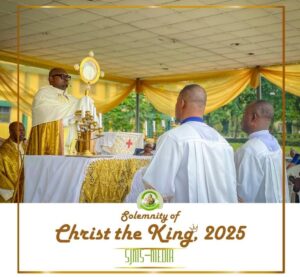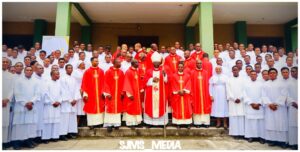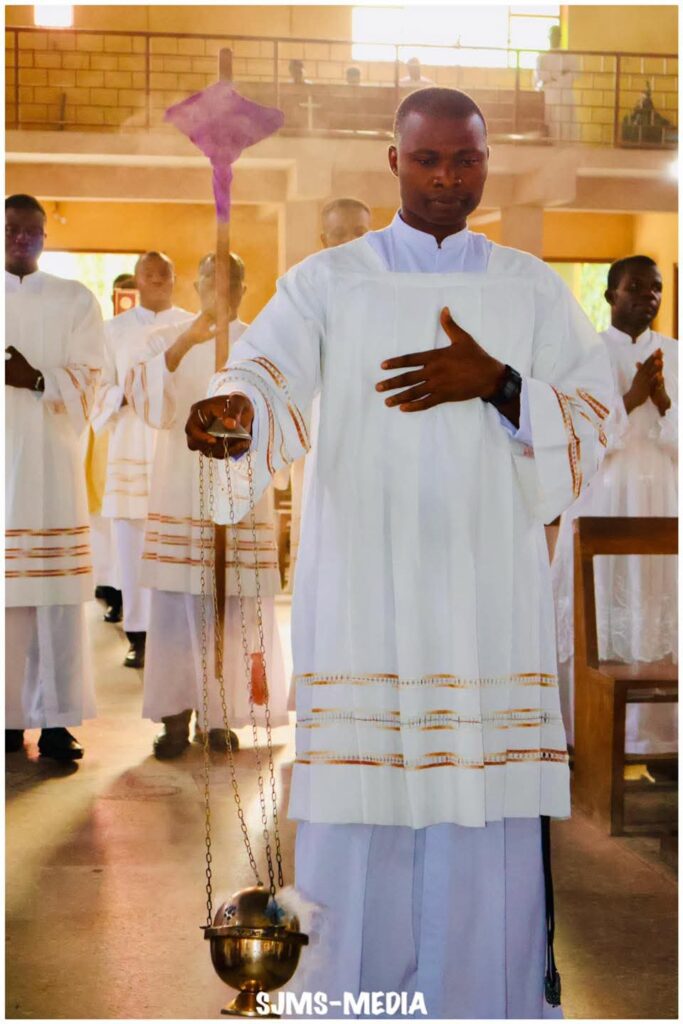
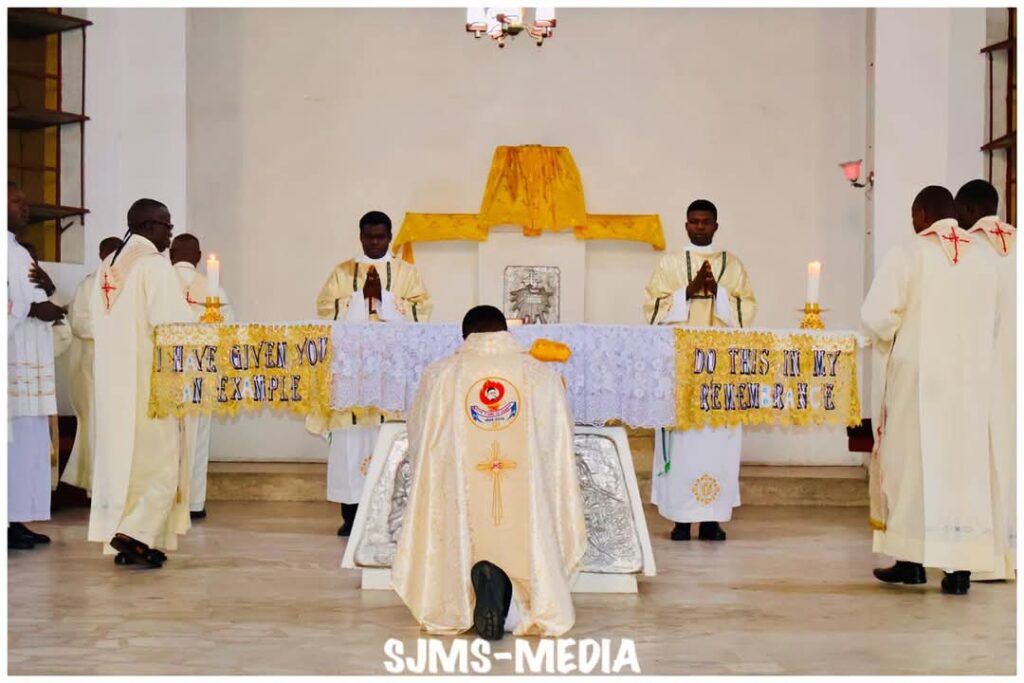
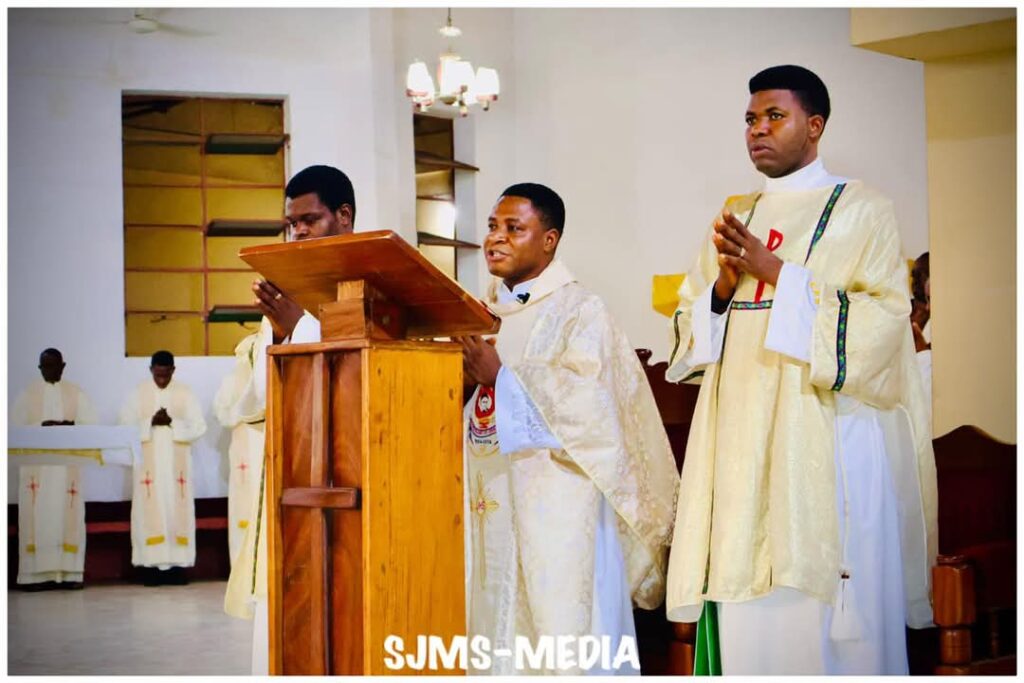
HOMILY BY THE CHIEF CELEBRANT, THE RECTOR MAGNIFICUS VERY. REV. FR. DR. PATRICK ABEM.
Dear Brothers and Sisters in Christ, this evening begins the Sacred Triduum, the most solemn days of the Church Year. In these days we accompany our lord Jesus spiritually and ceremonially in his final hours of agony beginning now with the Passover meal or last supper which he shared with his disciples, and his time in the garden of Gethsemane, as he awaited his arrest, masterminded by his bosom friend, Judas Iscariot. By tomorrow he shall carry his Sancta Cruce, that wooden cross that was a symbol of shame but has become a means of salvation. We still contemplate that moment that breaks us down in tears but without which we remain slaves to sin and impurity. Saturday after tomorrow will bring us to that moment of quietude and reverence before his grave while awaiting the great joy of his resurrection which has become the reason for our faith, the hope that does not fail but gives meaning to our existential struggles. The three readings for this Mass offer us some points to consider.
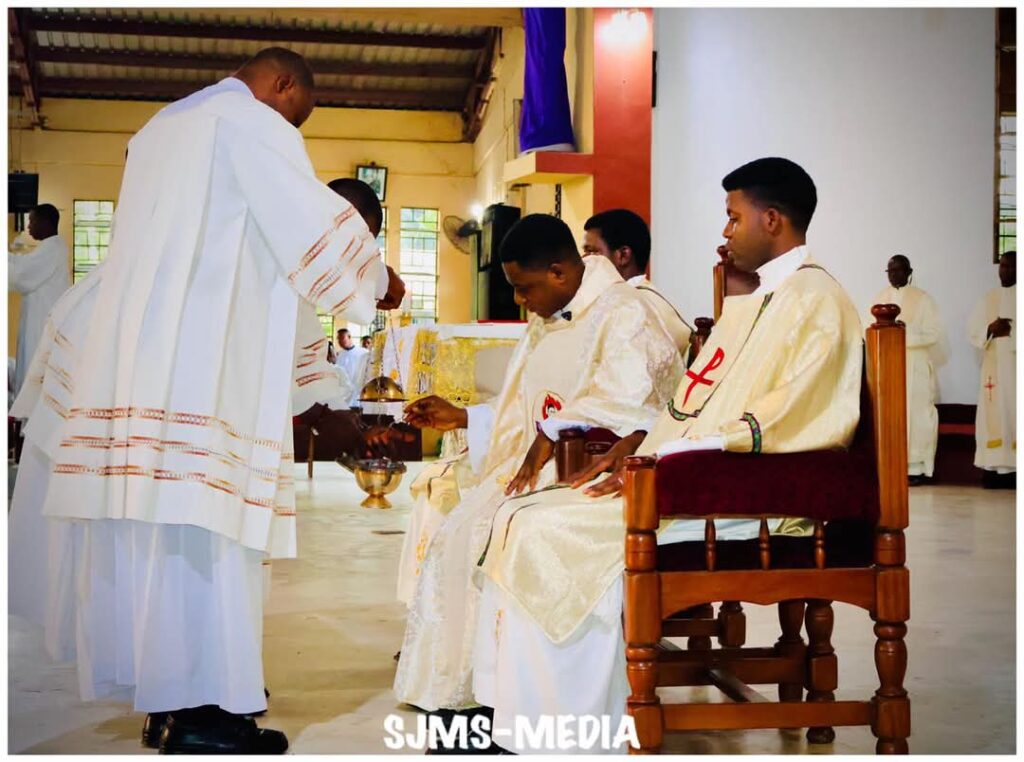
The Passover. In the First Reading from the Book of Exodus, the liturgy shows how the Passover of the Old Covenant provides the context for the Passover of Jesus. For the Israelites, the Passover was a remembrance of the meal eaten by their forefathers at the time of the Exodus from Egypt, the liberation from slavery. In the gospel for today drafted from the account of St. John, Chapter 13:1-15, we hear of Jesus saying: “I have longed to eat this Passover with you before I suffer” (Lk 22:15). In the Upper Room, Christ ate the Passover Meal with his disciples in obedience to the Old Covenant prescriptions, but he gave the rite new substance and new significance. We have heard how Saint Paul explains it in the Second Reading, taken from the First Letter to the Corinthians 11: 23-26. This text, which is thought to be the oldest account of the Lord’s Supper, recalls that Jesus, “on the night when he was betrayed took bread, and when he had given thanks, he broke it and said, ‘This is my body which is [given] for you. Do this in remembrance of me’.
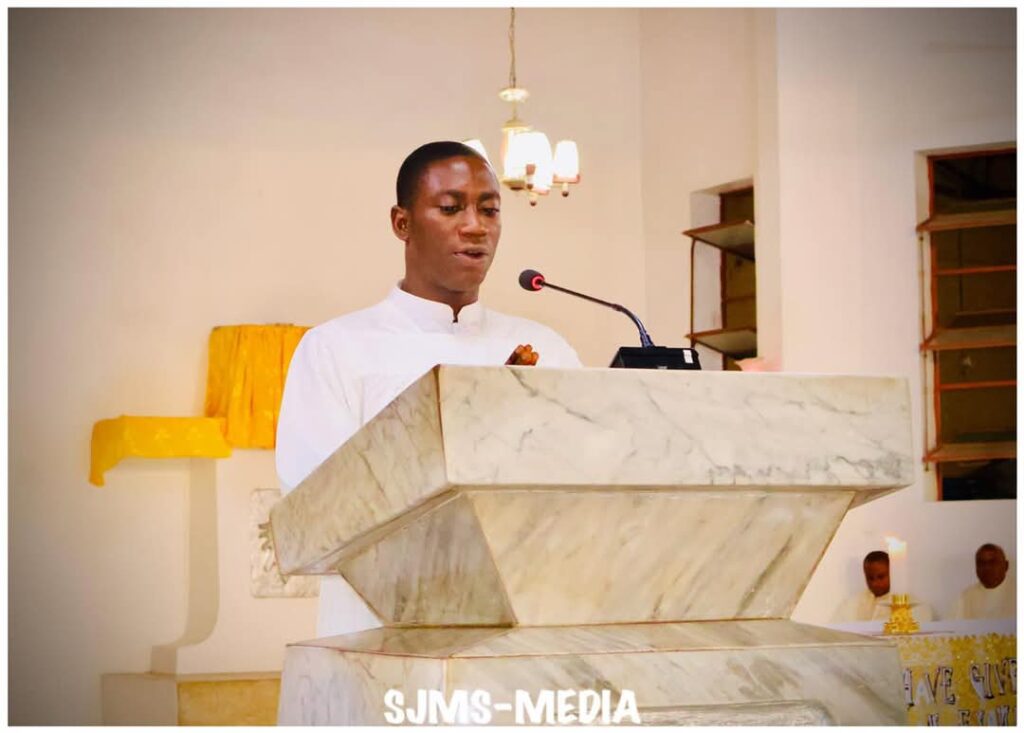
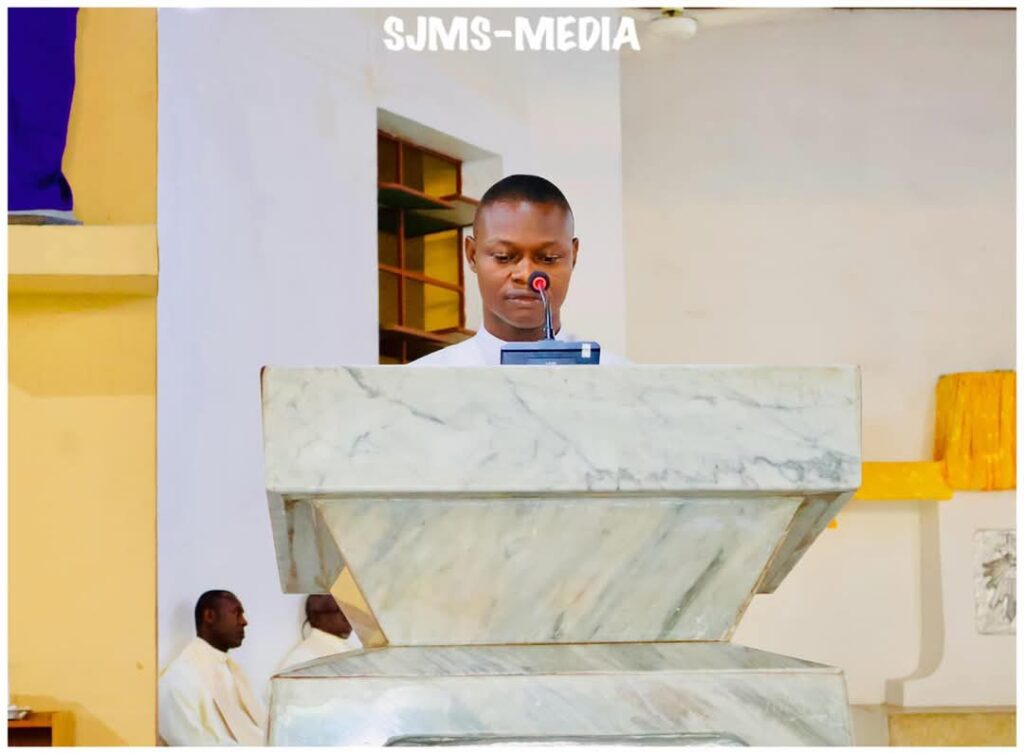
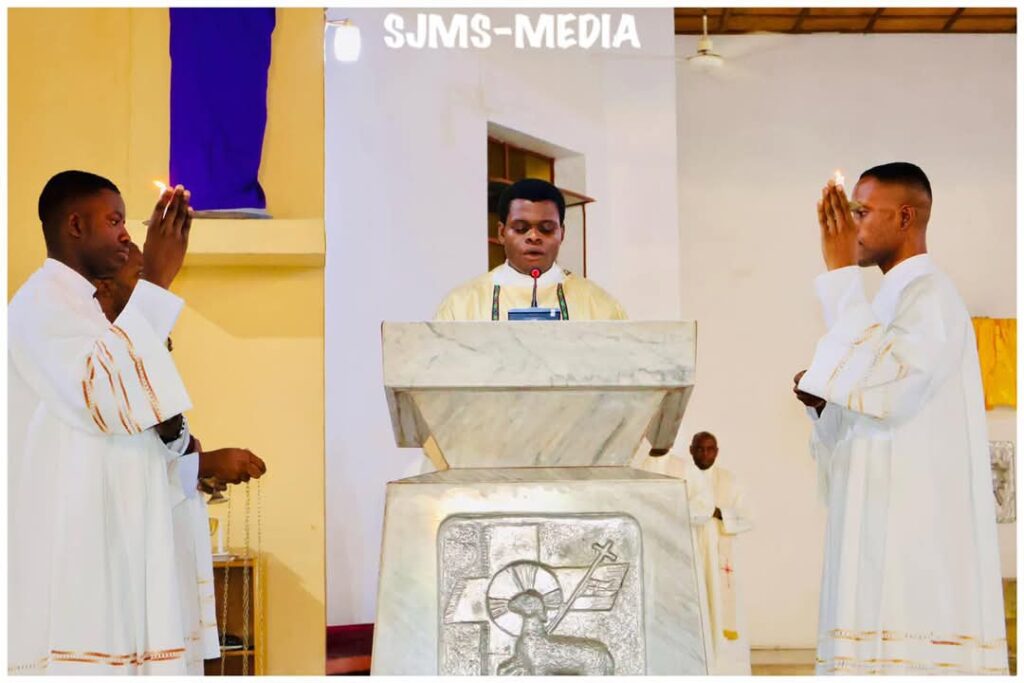
In the same way also the cup at the end of the meal, saying, ‘This cup is the new covenant in my blood. Do this, as often as you drink it, in remembrance of me’. For as often as you eat this bread and drink the cup, you proclaim the Lord’s death until he comes” (1 Cor 11:23-26). This has remained the motivation and justification for the Holy Mass, the font and summit of the Christian life.
The Stole and the Towel as profound symbols. The centrality of Maundy Thursday to the Catholic Faith and Christianity in general cannot be overexaggerated. Today, we celebrate two great mysterious gifts to humanity: the Ministerial Priesthood and the Holy Eucharist. Let us pause now and express gratitude to all Catholic priests, especially my brothers on the formation team. Thank you for accepting this gift of the priesthood and to live it joyfully all these years, ranging from thirty something years to three years. The essence of the priesthood does not consist in the numbers but in the quality of commitment to the priestly service and to the Church’s Mission. Let me share with you the story of about an Italian Bishop, Antonio Bello who died in 1993 at the age of 58. On his deathbed, he dictated a pastoral letter to the priests of his diocese. Essentially, he exhorted them to be bound by “the stole and the towel.” The stole symbolizes union with Christ in the Eucharist, and the Towel symbolizes union with humanity in humble and committed service as servants of the people.
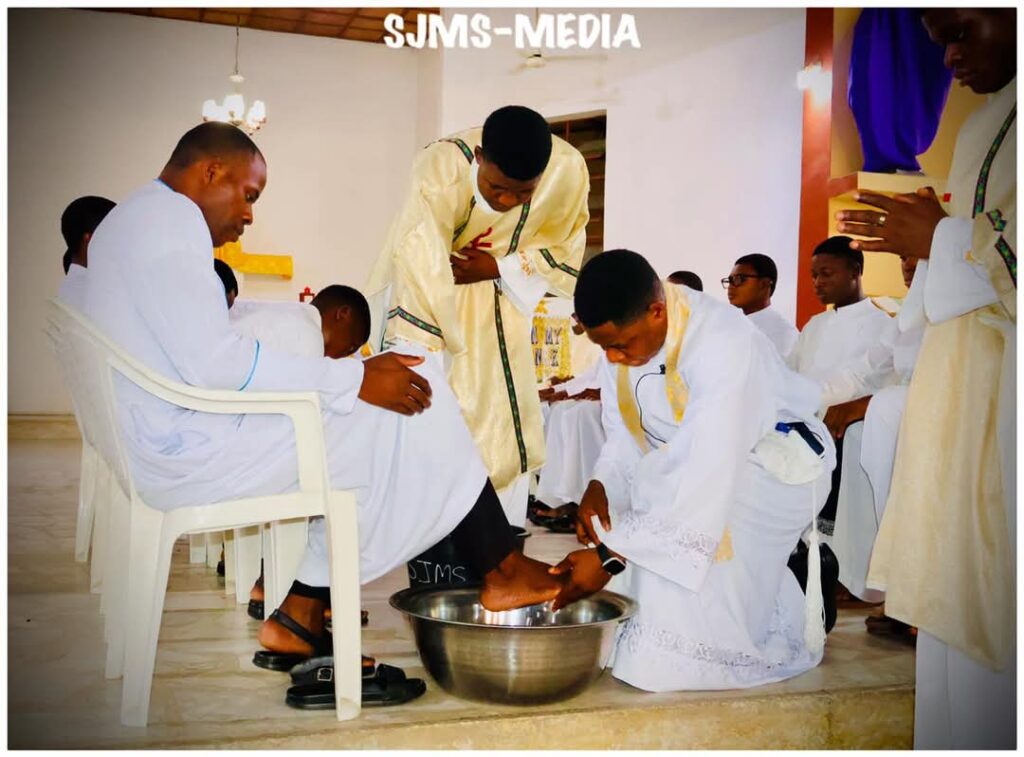
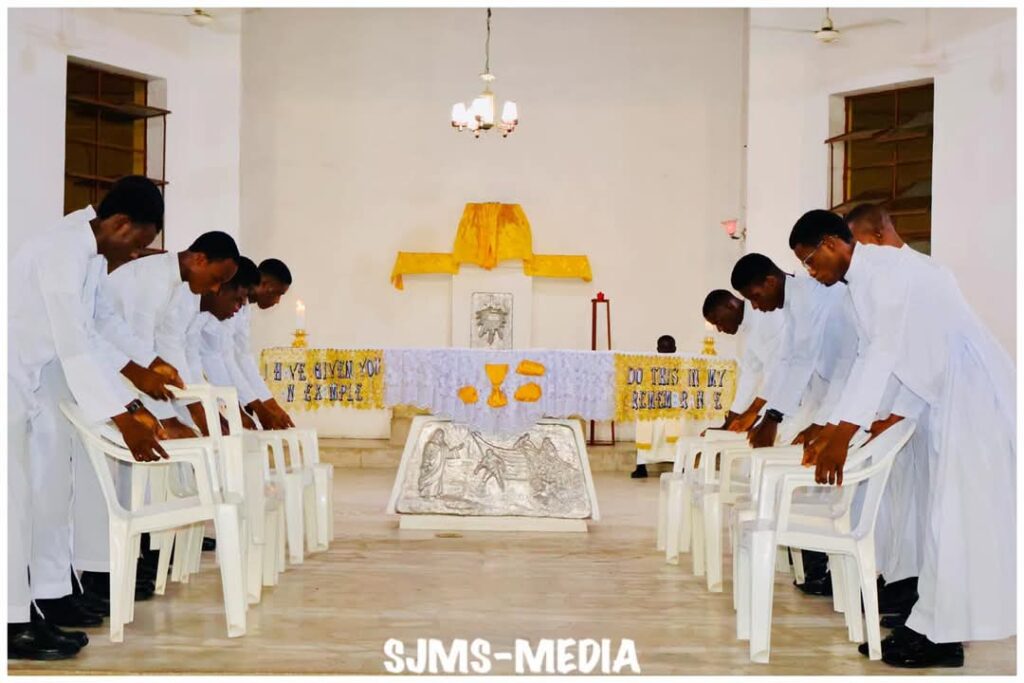
The feast we celebrate revolves around these two great gifts of God to humanity, the gifts that have had and can have great impacts in our society and the world over. Thank you for your commitment to the stole and to the towel, the feast of love and service. The sacrifice of your life to share in the priesthood of Jesus Christ with the denunciation of personal family in chaste celibate state cannot be rewarded by any material goods. Christ himself is our reward. The joy of the priesthood is great and consists in the commitment to the life and ministry proper to our priestly state. It is a contradiction for a priest to be sad.
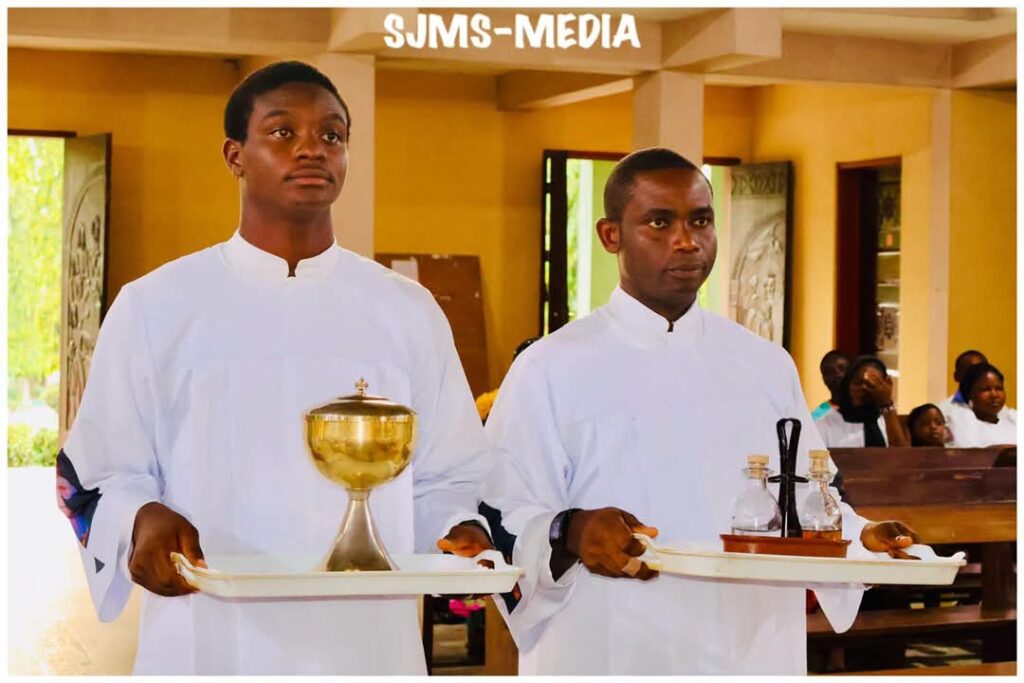
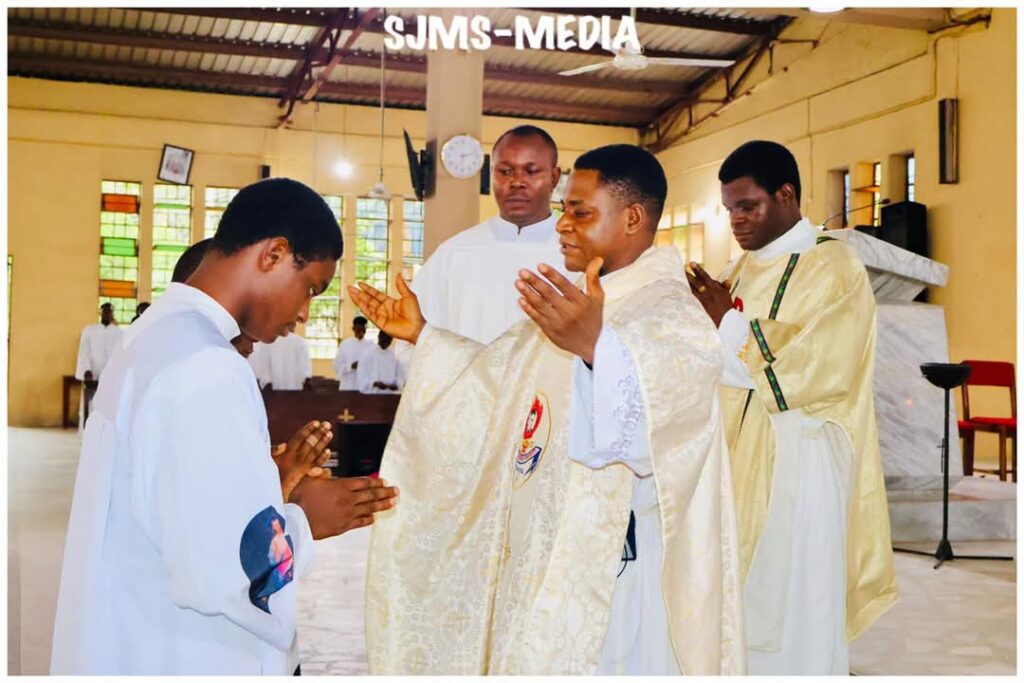
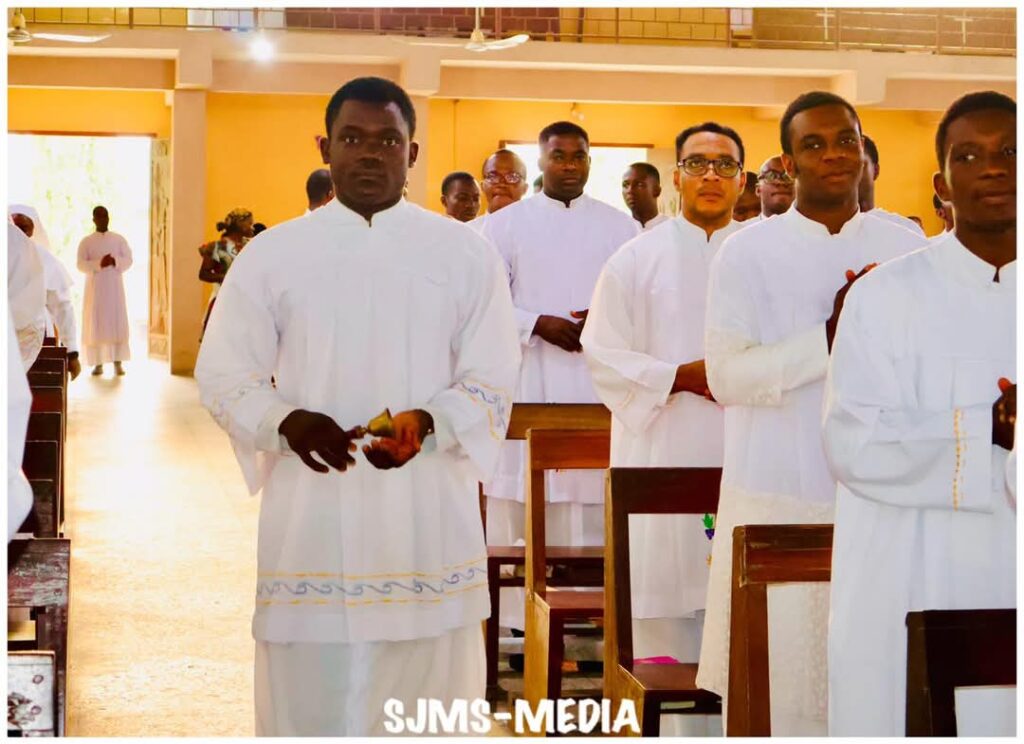
Let us conclude our reflection using the thoughts of Pope St. John Paul II in 2000. For him, in instituting/establishing the Eucharist, Jesus gives the Apostles a share as ministers in his priesthood, the priesthood of the new and eternal Covenant. In this Covenant, he and he alone is always and everywhere the source and the minister of the Eucharist. The Apostles in turn become ministers of this exalted mystery of faith, destined to endure until the end of the world. At the same time they become servants of all those who will share in so great a gift and mystery.
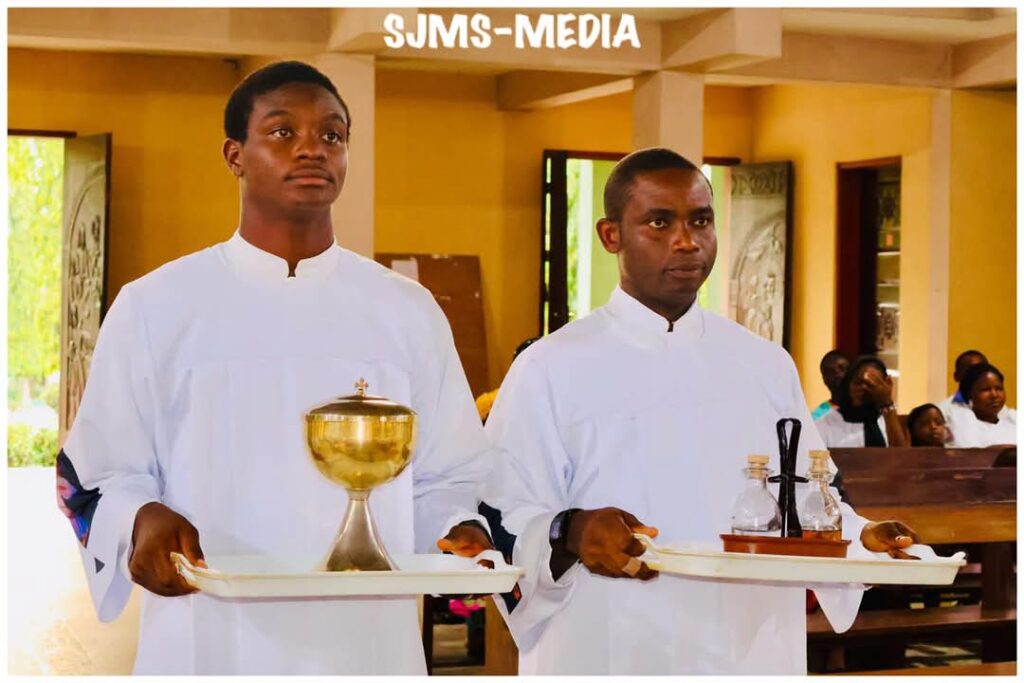
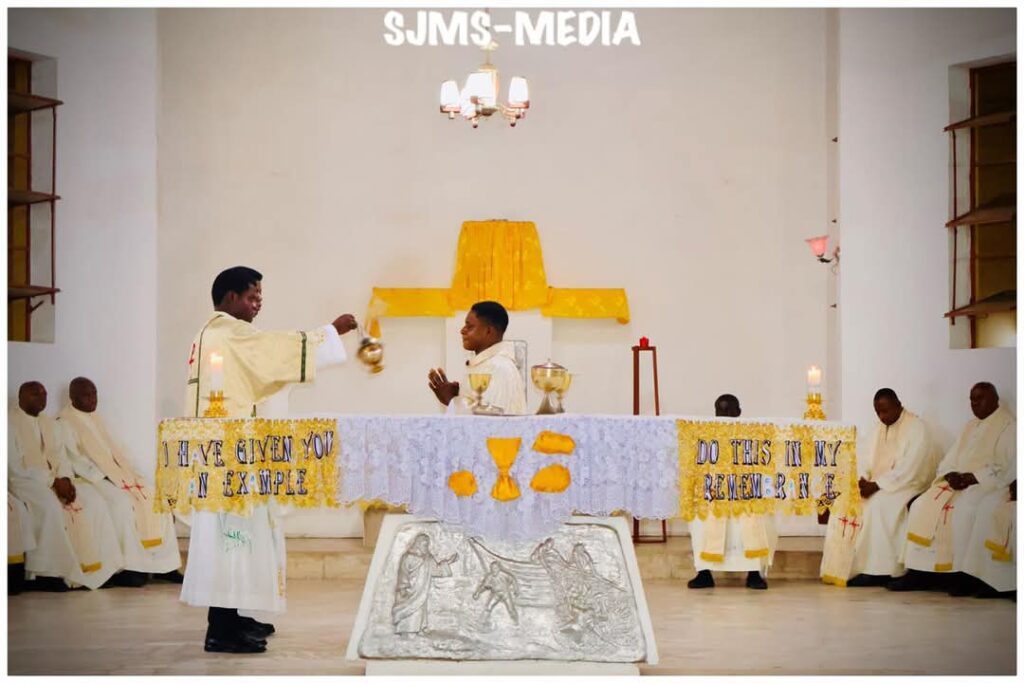
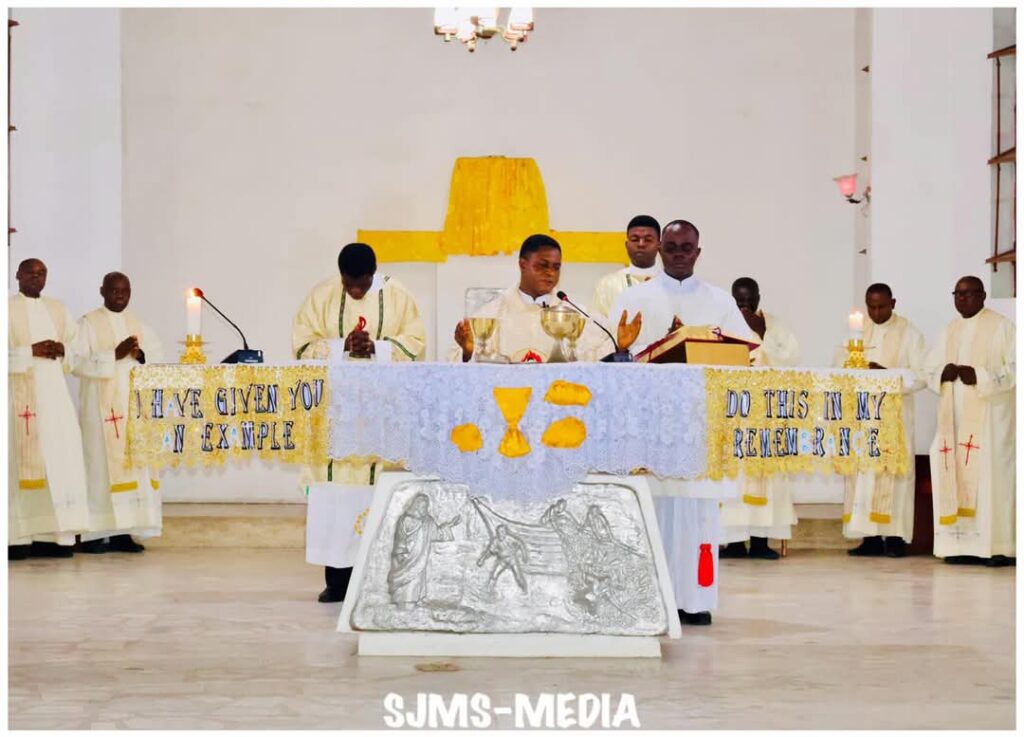
The Eucharist, the supreme Sacrament of the Church, is joined to the ministerial priesthood, which also comes to birth in the Upper Room, as the gift of the great love of the One who, knowing “that his hour had come to depart from this world to the Father [and] having loved his own who were in the world. . . loved them to the end” (Jn 13:1).
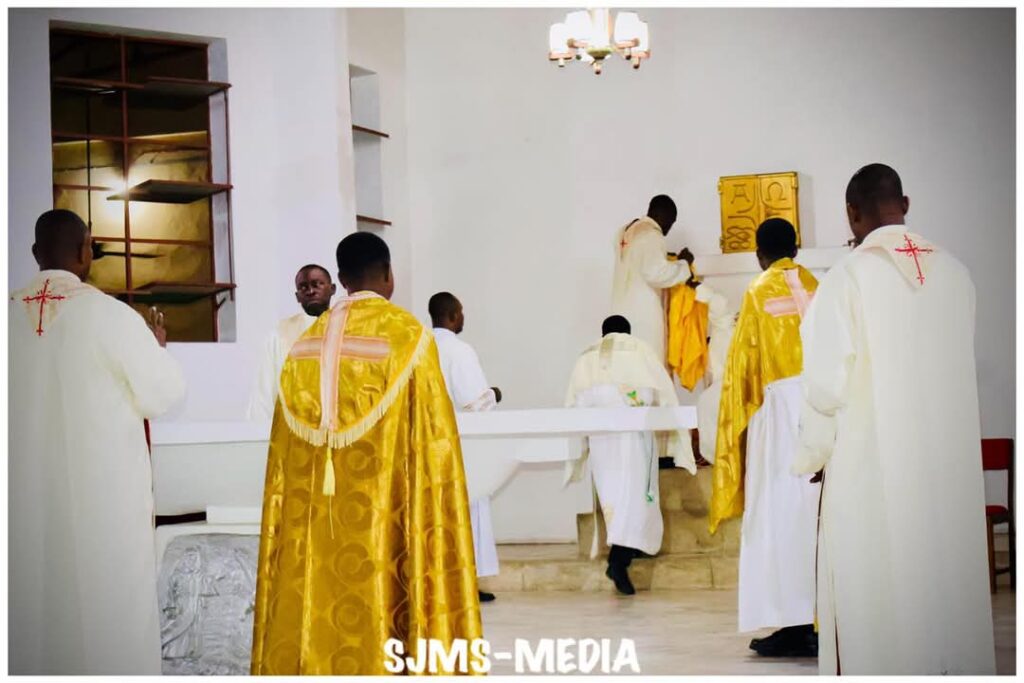
The Eucharist, the priesthood and the new commandment of love! This is the living memorial which we have before our eyes on Holy Thursday.
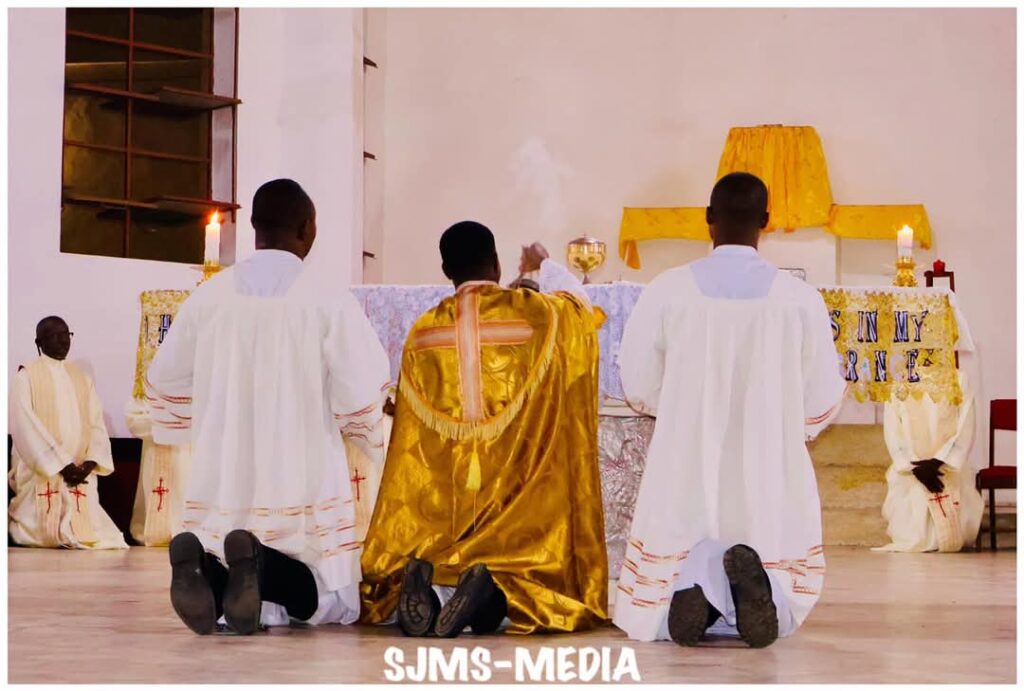
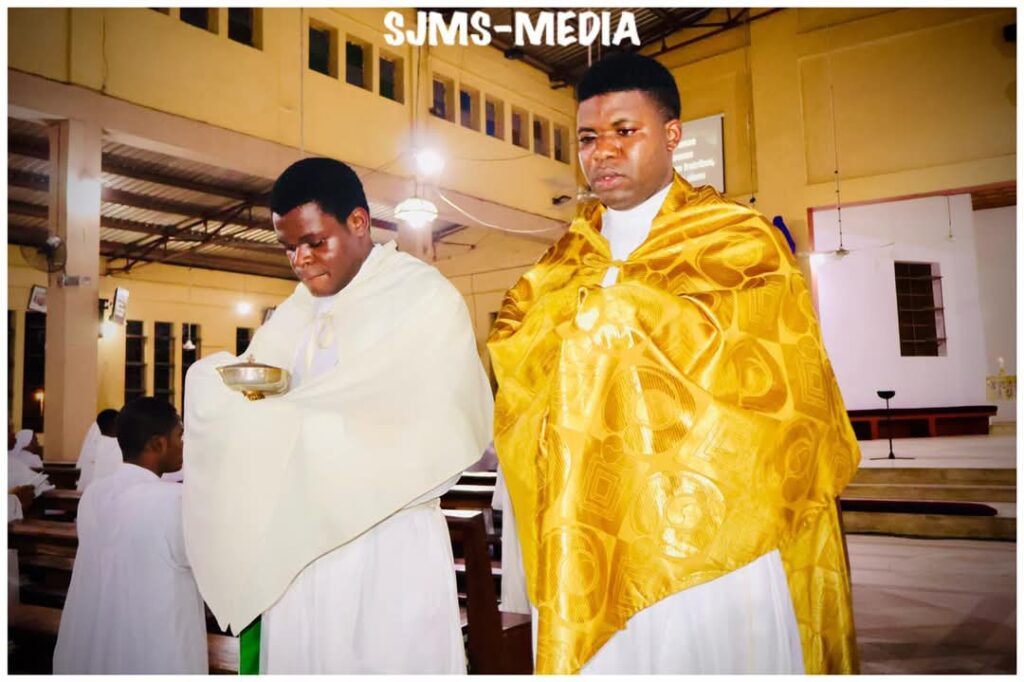
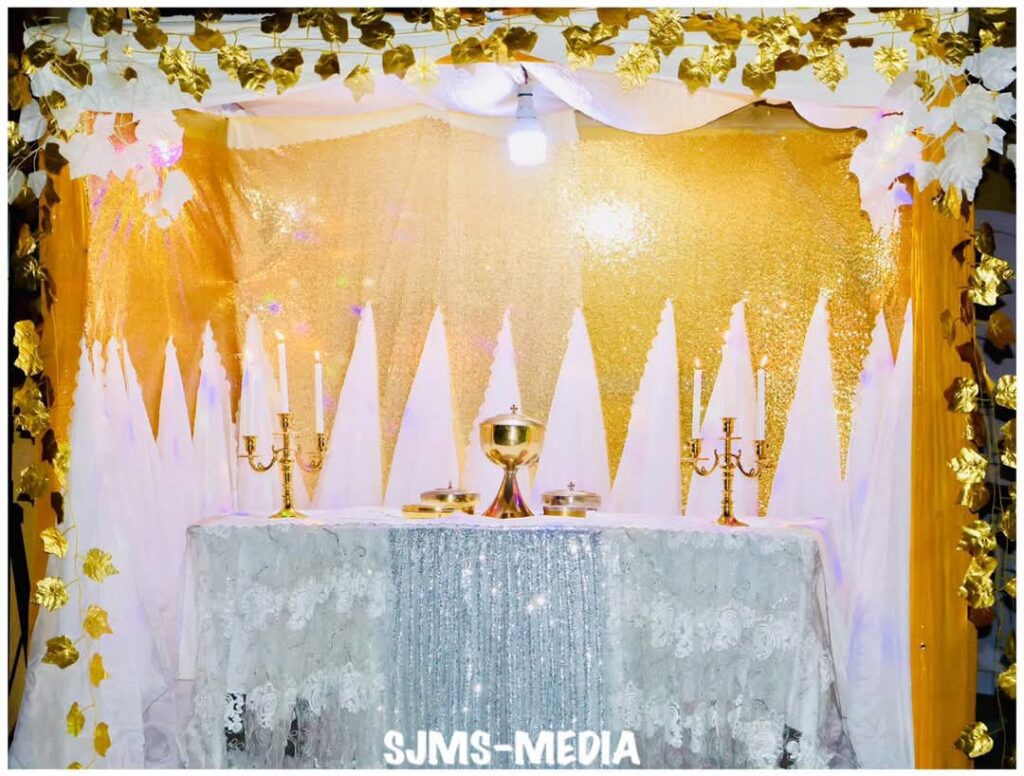
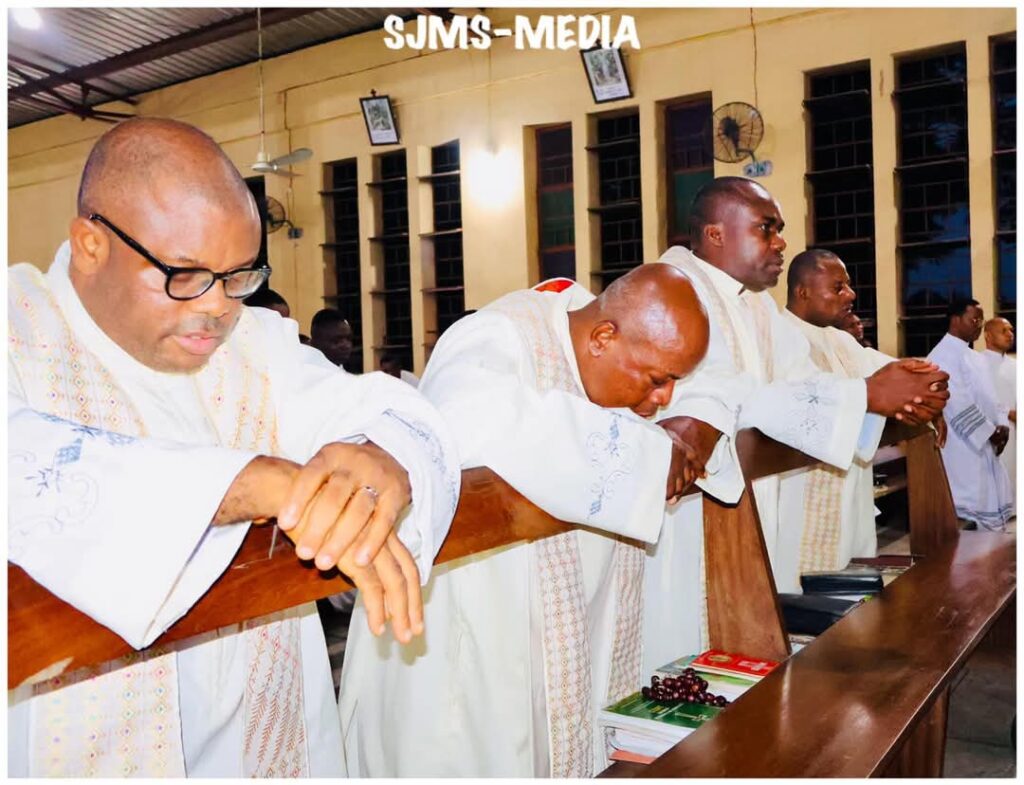
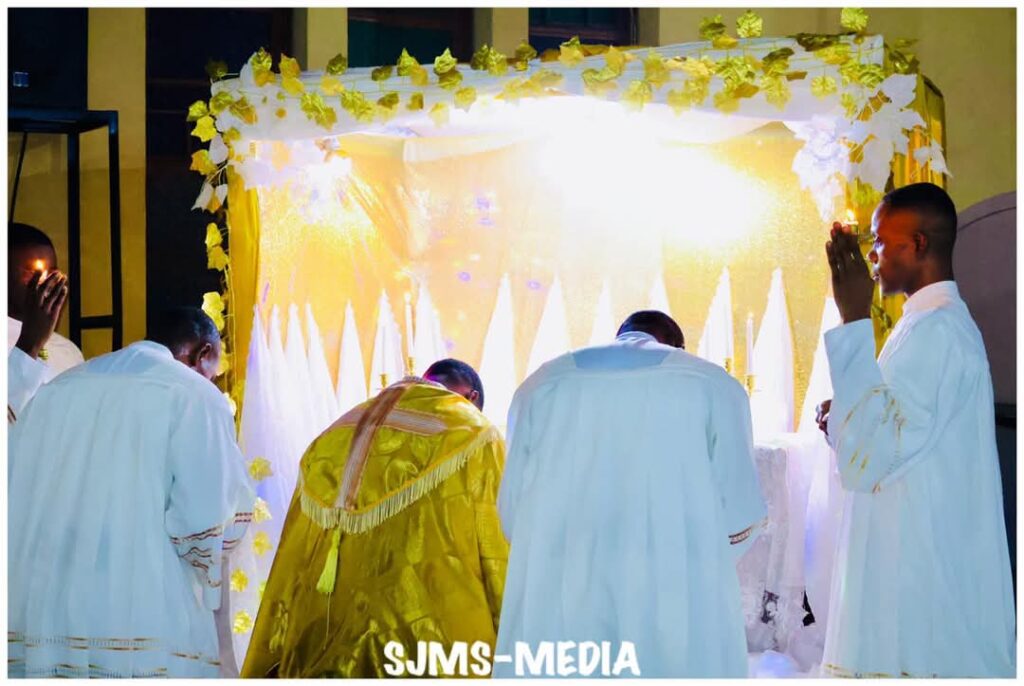
“Do this in memory of me”: this is the Passover of the Church! This is our Passover! This is the source of our purity of heart.


